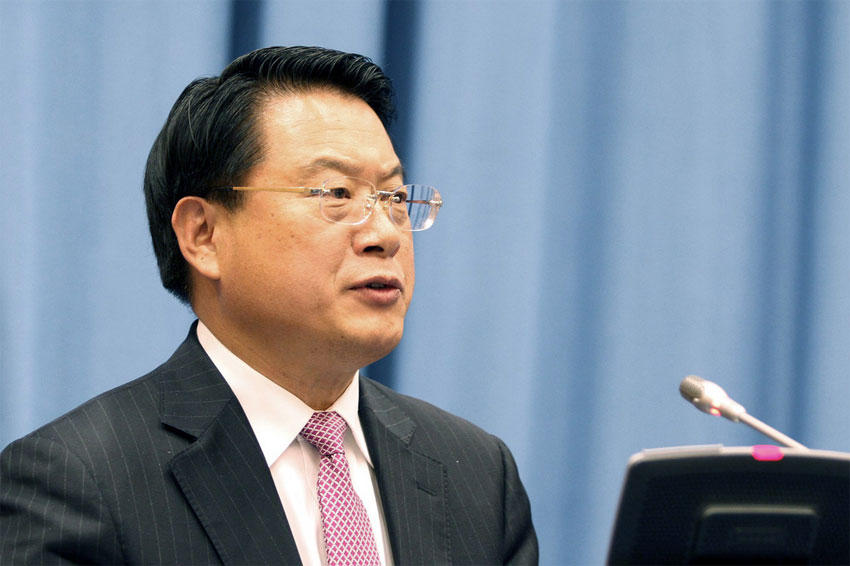Africa’s Decade of Industrialization

By Li Yong
In today’s interdependent global economy, Africa remains a weak link. If the world is to achieve the Sustainable Development Goals, thereby completing the United Nations 2030 Agenda for Sustainable Development, it must help Africa accelerate its development by promoting rapid and responsible industrialization.
Africa is by no means destined to lag behind the rest of the world economy. On the contrary, it could easily become a global economic powerhouse – and within the next decade. But, to fulfill its economic potential, Africa must industrialize.
The importance of this has been stressed repeatedly at recent international forums, including last August’s Sixth Tokyo International Conference on African Development (TICAD VI), and the G20 summit in Hangzhou, China, the following month. For the first time, the G20 placed industrialization in Africa – and all of the Least Developed Countries (LDCs) – on its agenda. The African Union’s Agenda 2063 also supports this drive.
The recent UN General Assembly resolution declaring 2016-2025 the Third Industrial Development Decade for Africa is yet another push in this direction. The organization that I represent, the UN Industrial Development Organization (UNIDO), has been tasked with operationalizing and leading the implementation of the concomitant program, including mobilizing the needed resources.
All of these declarations and commitments are an important first step. But they will mean little unless they are translated into concrete and effective action that advances African industrialization, creates jobs, and fosters inclusive and sustainable economic growth and development. The question is how.
The short answer is money and action. We must challenge the international community and development partners to back their words with real financial commitments. And we must build partnerships to operationalize programs that will enable Africa to become the world’s next main engine of economic growth.
Such programs must recognize and tackle the acute challenges the continent faces. The economic growth experienced in recent decades has not been structurally driven, sustainable, or fully inclusive. Indeed, growth rates vary widely across the continent, and not all Africans are benefiting. Though the middle class in Africa has expanded markedly in recent years, generating a consumer boom and boosting domestic investment, many people still struggle to make a living. Unemployment rates are high, especially for young people and women – a reality that drives many Africans to head north.
To keep them home, Africa’s economies must move beyond producing raw materials to build dynamic and competitive manufacturing sectors with higher value added. Here, Africa must draw on the opportunities presented by participation in global and regional value chains. New and innovative industrial-development strategies, as well as carefully tailored measures to attract foreign direct investment, must be introduced.
Of course, to develop such strategies and participate effectively in industrial value chains, Africans need knowledge. Investment in education and skills training is imperative to facilitate successful and lasting industrialization. By understanding and drawing on proven innovations from around the world, Africa could leapfrog more developed countries technologically, building the capacity to produce more sophisticated, higher-value goods.
Knowledge of other countries’ experiences will also help Africa to avoid the pitfalls of unbridled industrialization – particularly environmental damage. Africa must ensure that its industrial-development strategy includes effective environmental safeguards.
Africa is well placed to industrialize. Beyond its massive natural-resource endowments, the continent has a favorable demographic profile (its rapidly growing population means that it will soon have the world’s largest workforce) and high urbanization rates. It also benefits from a highly educated diaspora.
But industrialization is never automatic. Governments must step up to address market failures, while planning, implementing, and enforcing industrial policies that address the shortcomings of previous ineffective versions. They must then institutionalize these new policies in national and regional development strategies.
To succeed, governments will need adequate capacity, competence, and legitimacy to mobilize and interact with allstakeholders, thereby creating an attractive investment climate. The necessary reforms will open the way for public-private partnerships, which can provide investment for infrastructure development and maintenance. They will also facilitate cooperation with international organizations and development finance institutions, which can provide additional funds, while helping countries to upgrade their productive capacity.
A recent report, prepared for the Hangzhou G20 Summit, features a number of recommendations for Africa. It suggests support for agriculture and agribusiness development and linking them with other sectors, as well as measures to boost resilience to price shocks. Furthermore, the report emphasizes the need to deepen, broaden, and update the local knowledge base, invest in energy- and material-resource efficiency, and promote green technologies and industries. Other recommendations relate to trade and regional integration, leveraging domestic and external finance, and promoting what it calls the “New Industrial Revolution.”
My numerous meetings with African leaders and visits to dozens of countries across the continent have convinced me that Africa is committed to industrialization. In fact, the process is already underway in many countries, including Ethiopia, Ghana, Rwanda, and Senegal. By offering our commitment and support, we can enable these countries to realize inclusive and sustainable development for the benefit of everyone.
Copyright: Project Syndicate: Africa’s Decade of Industrialization
---
Follow us on Twitter @AzerNewsAz
